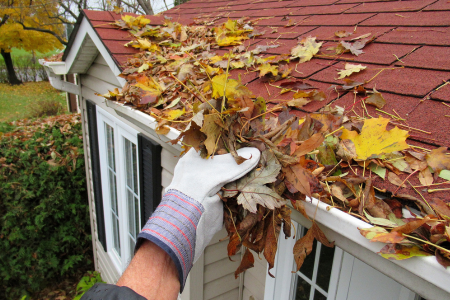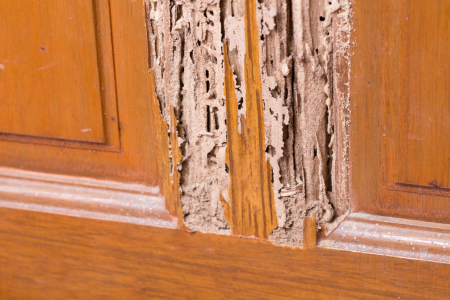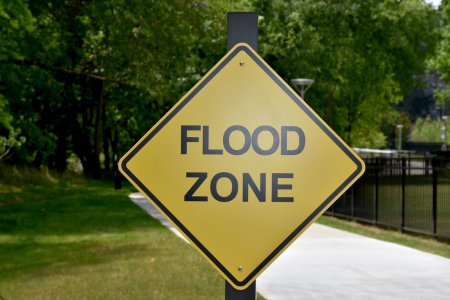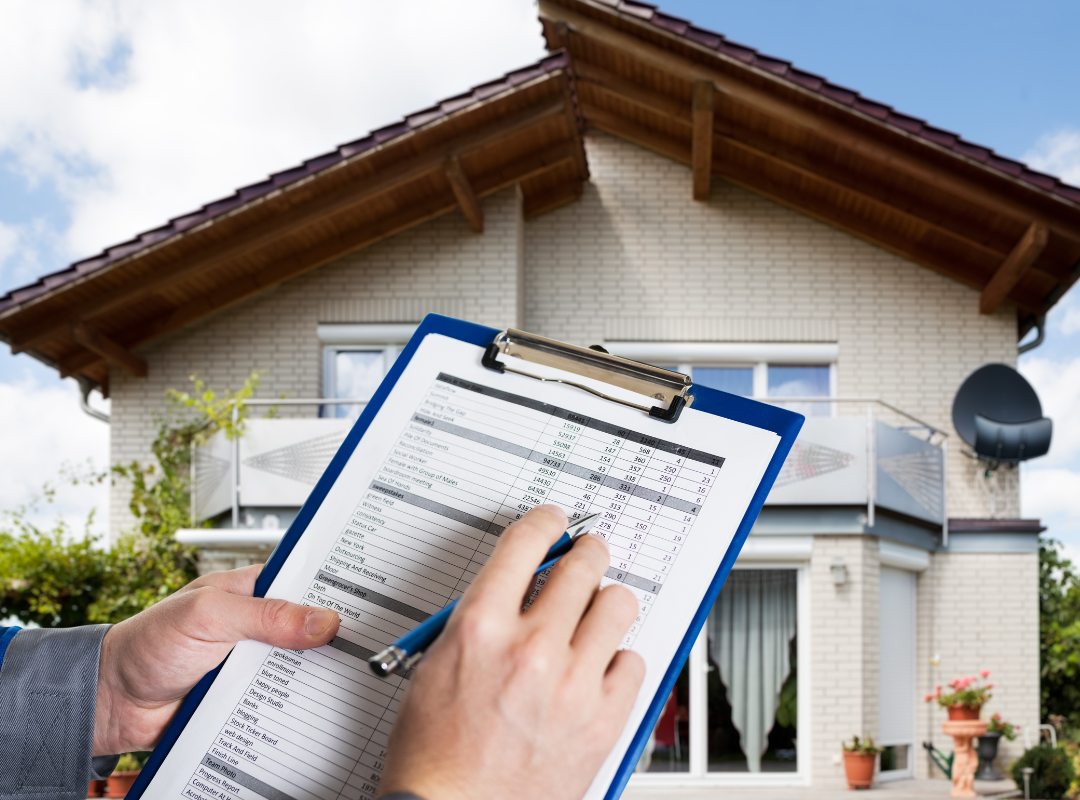What Hurts a House Appraisal in Texas? Key Factors to Consider
Understand how factors like outdated systems and clutter can hurt your home’s appraisal value in Texas. Ready House Buyer provides insights into how these elements affect the appraisal process.
TABLE OF CONTENTS
- How Can Energy Efficiency Impact House Appraisals in Texas?
- How Does the Neighborhood Affect Home Appraisal Value?
- What Role Do Unfinished Spaces Play in a Property’s Valuation?
- Why is Home Maintenance History Essential for Appraisals?
- Are Outdated Interior Designs Hurting Home Appraisals?
- How Can Pest Issues Lower a Property’s Worth?
- Do Zoning Laws and Restrictions Contribute to Appraisal Challenges?
- Can Proximity to Environmental Hazards Affect Appraisal Outcomes?
- How Does the Market Demand Influence Appraisal?
- What is the Impact of Curb Appeal Enhancements?
- Frequently Asked Questions
How Can Energy Efficiency Impact House Appraisals in Texas?
When selling a home in Texas, energy efficiency now plays a crucial role in the appraisal process. Appraisers are increasingly focusing on energy-efficient features as they can boost a home’s market value.
Importance of Modern HVAC Systems
Old HVAC systems can lower your home’s appraisal. In contrast, modern HVAC units improve energy efficiency and are seen as valuable home improvements. They help keep indoor temperatures comfortable with less energy use—important in Texas’ hot climate. A modern HVAC system not only provides comfort but also enhances the property’s condition, making it more appealing to buyers.
Role of Insulation and Windows
Good insulation and modern windows are key to reducing energy waste. If your home has old or ineffective insulation, it may lead to higher utility bills, negatively affecting the appraisal. Upgrading these features not only boosts energy efficiency but also improves your property’s overall condition. Appraisers recognize the short-term benefits and long-term savings from these home improvements.
Influence of Solar Panels and Eco-Friendly Features
Solar panels and eco-friendly features are becoming more popular with homebuyers. These upgrades show a commitment to sustainability and energy efficiency. In Texas, solar panels can greatly impact appraisals by lowering future energy costs for homeowners. Eco-friendly features make a home seem modern, increasing its market appeal.
How Does the Neighborhood Affect Home Appraisal Value?

The neighborhood is a key factor in determining a home’s market value. Elements like school ratings, crime rates, and nearby amenities can impact the appraisal.
Significance of Local School Ratings
Local school ratings are important for families moving to Texas. High-rated schools can increase your home’s appraisal value, enhancing the neighborhood’s attractiveness. Homes in areas with well-rated schools tend to have higher prices.
Effect of Crime Rates on Appraisal
Crime rates in a neighborhood are another critical factor for appraisers. High crime rates can lower appraisals by making the area less desirable. Low crime rates, however, can enhance a neighborhood’s appeal and positively influence your home’s appraisal.
Nearby Amenities and Their Impact
Nearby amenities such as parks, shopping centers, and public transportation can greatly impact appraisal values. Homes with easy access to amenities are often more desirable, leading to higher appraisals. These features improve life quality and reflect well on the property’s condition.
What Role Do Unfinished Spaces Play in a Property’s Valuation?
Unfinished spaces, like basements and attics, can greatly affect a property’s value. These areas may be seen as untapped potential during an appraisal. But how exactly do these spaces influence property value?
Basements and Attics: Value Addition or Detraction?
When looking at basements and attics, their impact on value depends on the perception of buyers and appraisers.
- Basements: Used often for storage, an unfinished basement could be viewed as a blank slate for home improvement. Finishing it can add value by increasing living space. If left unfinished, it might not boost the home’s appraisal significantly.
- Attics: Similarly, attics offer storage but can add more value if turned into living areas. Deciding to finish an attic should weigh the cost against the possible rise in appraisal value.
Investing in these spaces can match real estate trends, ultimately raising property value.
Impact of Partially Completed Home Improvements
Homeowners often start renovations, but what happens if they’re only partially done? These incomplete projects can negatively impact property value at appraisals.
- Financial Impact: Incomplete renovations might suggest financial problems to potential buyers.
- Appraisal Consequences: Appraisers may see unfinished projects as future expenses for new owners, possibly lowering the valuation.
Finishing home improvements is key to maximizing property value, and it will be reflected in an appraisal.
Why is Home Maintenance History Essential for Appraisals?

A well-kept home maintenance history is valuable during property appraisals. This record shows regular care and repairs, positively affecting appraisers’ views.
Consequences of Ignoring Routine Maintenance
Ignoring routine maintenance can have significant negative effects on property value:
- Structural Issues: Skipping routine care can lead to major structural problems, needing expensive repairs.
- Decreased Appraisal Value: During an appraisal, visible neglect can reduce the property’s perceived value.
Keeping up with repairs and maintenance is important to protect—and even increase—a property’s value.
Benefits of Documented Repair History
Maintaining detailed repair records offers several advantages:
- Increased Property Value: A documented repair history reassures potential buyers and appraisers that the property has been well cared for, enhancing its value.
- Facilitated Appraisals: Having repair records ready can make inspections easier, leading to smoother appraisals.
Proper documentation not only supports higher appraisals but also builds trust with prospective buyers about the property’s condition.
By understanding these aspects of property valuation, homeowners can make informed decisions about unfinished spaces and home maintenance, enhancing their property’s value.
Are Outdated Interior Designs Hurting Home Appraisals?
First impressions matter when selling your home. You might wonder if your interior decor affects its appraisal value. If your home has dated designs, old appliances, and outdated fixtures, it could lower the appraised value.
Influence of Old Appliances on Value
Old appliances can reduce your home’s value during an appraisal. Outdated systems not only reduce appeal but also hint at future costs for buyers. Modern, energy-efficient appliances are attractive to eco-conscious and budget-savvy buyers and can increase your home’s value. Consider upgrading to more modern models for a positive impact.
The Impact of Dated Fixtures and Finishes
Dated fixtures and finishes can negatively affect your home’s appraisal. Features like old lighting, worn countertops, and aging bathroom finishes may suggest that your property needs major renovations. Simple updates like modern faucets or fresh paint can refresh these areas and enhance your home’s marketability and appraisal value.
How Can Pest Issues Lower a Property’s Worth?

Pest problems are more than just annoying; they can greatly reduce a property’s worth. Infestations indicate maintenance problems and potential damage, deterring buyers and lowering appraisal values.
Identifying Common Pest Problems in Texas
In Texas, pests like termites, ants, and rodents are common issues for homeowners. Identifying these problems early is crucial to avoiding extensive damage. Regular inspections and timely treatment can protect your property’s value and address infestations before they impact the home appraisal.
Long-term Effects of Pest Infestations on Property
The long-term effects of pest infestations can be severe. Pests like termites can cause extensive structural damage, which lowers your home appraisal. Beyond physical damage, pest issues can indicate neglect, leading to lower buyer offers. Proactive pest management and repairs help preserve your property’s integrity and value.
Addressing outdated interiors and pest problems can improve your home’s appraisal and make it more appealing to buyers. For detailed advice tailored to your situation, consult real estate experts or home improvement professionals.
Do Zoning Laws and Restrictions Contribute to Appraisal Challenges?
Zoning laws and restrictions play a big role in how properties are appraised. These laws dictate what land can be used for in certain areas, impacting both residential and commercial properties. Knowing these regulations helps both property owners and buyers understand how zoning might affect property value and any challenges that may come up during the appraisal.
Understanding Residential vs. Commercial Zoning
Zoning classifications, like residential and commercial zoning, define how a property can be used, which can greatly impact its value. Residential zones are mainly for housing, while commercial zones are meant for businesses. These zoning rules influence land use and affect neighborhood dynamics and the real estate market. Both property classification and local zoning rules are key in shaping property value and determining what developments can happen in a neighborhood.
Building Codes and Their Impact on Property Value
Building codes set minimum standards for construction quality and safety. They can directly affect a property’s appraisal by influencing perceived quality and compliance with housing standards. If construction meets current building codes, it can enhance property value, giving appraisers confidence in the property’s quality. On the other hand, structures that aren’t up to code may receive lower appraisals due to safety concerns or the cost of renovations to meet standards.
Can Proximity to Environmental Hazards Affect Appraisal Outcomes?

Being close to environmental hazards is another important factor in determining property value and appraisal outcomes. Properties near flood zones, pollution sites, or other natural risks can lose value because of their increased vulnerability and higher insurance costs. In states like Texas, where flooding and other natural risks are common, it’s vital for property appraisers and the real estate market to understand these factors.
Recognizing Common Environmental Concerns
Environmental issues like flood zones, pollution, and other natural risks can hurt property value and appraisal results. Neighborhoods facing these risks often see lower property appraisals due to potential damage and health hazards. Buyers and investors must be aware of these concerns as they heavily influence the real estate market and neighborhood appeal.
Effect of Flood Zones and Other Natural Risks
Flood zones and similar natural risks can make properties more vulnerable, affecting both insurance costs and appraisal values. Properties in flood-prone areas may require higher insurance premiums, lowering overall property value. These environmental factors are crucial for the real estate market, especially in places like Texas, where such risks are more prevalent. Understanding these issues can help property owners reduce negative effects on their property’s appraisal.
How Does the Market Demand Influence Appraisal?
Understanding how market demand influences appraisal is important for anyone involved in real estate. Whether you are a buyer, seller, or real estate professional, knowing these dynamics helps. In places like Texas, markets can quickly change from a seller’s market to a buyer’s market, which affects home values and appraisals.
In a seller’s market, there is more demand than homes available. This can lead to higher home prices and appraisals because buyers compete for few available homes. For example, Texas homeowners might see their home values increase due to this competition. On the other hand, in a buyer’s market, there are more homes than buyers. This can result in lower appraisals as buyer competition decreases.
Real estate professionals should watch these trends closely. By understanding current conditions, they can better predict appraisal values and set realistic expectations for both buyers and sellers.
What is the Impact of Curb Appeal Enhancements?

Enhancing curb appeal can greatly affect a property’s appraisal and overall value. Making a good first impression is key. Improvements like landscaping and new exterior paint make a home more attractive and can boost its value during a property appraisal.
Key Enhancements:
- Landscaping: Well-kept gardens and lawns improve curb appeal and make properties more appealing to buyers and appraisers.
- Exterior Paint: New paint can give a home a fresh and clean look, showing it is well-maintained.
- Exterior Repairs: Fixing roof shingles, gutters, and broken windows improves a home’s appearance and condition, positively affecting appraisal value.
By focusing on these elements, homeowners can make their properties stand out in the housing market. This can lead to better appraisals and higher home values. Doing these improvements before selling can offer a good return on investment by attracting buyers quickly and at favorable prices.
Frequently Asked Questions
What factors can negatively impact a home appraisal in Texas?
Several things can lower your home’s appraisal value in Texas. Poor maintenance of systems like heating, cooling, plumbing, and electrical can hurt the value. Outdated kitchens and bathrooms, old appliances, or structural damage such as foundation cracks and water damage also affect appraisals. Additionally, the property’s location near noisy highways or in areas with high foreclosure rates can negatively influence its value.
How do unique renovations affect a home’s appraisal value?
Unique renovations can have mixed effects on a home’s value. Some custom changes may attract certain buyers, but they might make the property harder to sell if they don’t align with current market trends. It’s important to ensure renovations add practical value and stay within traditional features that buyers often look for.
Can clutter or cleanliness impact my home’s appraisal outcome?
Yes, clutter and cleanliness can impact appraisal results. Messy spaces or visible neglect can give a bad impression, possibly leading to a lower valuation. Keeping your home tidy and presentable helps in getting a higher appraisal value.
What role does the condition of the basement and attic play in an appraisal?
The condition of the basement and attic is significant in an appraisal. Issues like moisture, mold, or structural damage can decrease the home’s value. Keeping these areas dry, clean, and well-maintained is crucial for a favorable appraisal.
How do outdated appliances and fixtures impact a home appraisal?
Outdated appliances and fixtures suggest future repair or replacement costs, which can lower a home’s appraisal. Modern, energy-efficient updates in kitchens and bathrooms usually add value and appeal to buyers and appraisers.
Are there any financial implications tied to home appraisals that I should be aware of?
Yes, home appraisals can affect various financial decisions. A lower appraisal might impact mortgage loans or refinancing options, as lenders may not approve the desired loan amount if the property’s value is too low. It could also lead to higher interest rates or additional insurance costs.
Does landscaping influence home appraisal in Texas?
Landscaping significantly affects a home’s curb appeal, which is crucial for an appraisal. Well-kept lawns and gardens can improve perceived value, while neglected outdoor areas might reduce it. Investing in good landscaping often benefits appraisal results.
What should I do if my home appraisal is lower than expected?
If your appraisal is lower than expected, review the report for errors and compare it to similar homes nearby. Make necessary repairs or upgrades to address any issues reported. If you find mistakes, you can challenge the appraisal with help from your lender or realtor.
Key Points
- Structural issues like unrepaired damages and clutter can hurt your home’s appraisal in Texas. Keeping areas clean is crucial.
- High property tax rates, insurance costs, and utility bills may lower your Texas home’s value. Understand these financial factors before putting your property for sale.
- Homes near highways, with a flooding history or structural defects, may receive lower valuations. Address these issues for a better appraisal.
- Energy inefficiency and lack of natural light can reduce home value. Consider replacing fixtures or adding energy-efficient windows.
- Nearby foreclosures, a weak housing market, and low homeownership rates can impact appraisal value. Compare similar homes in your area for pricing insights.
- Poor curb appeal from messy landscaping or visible foundation issues can leave a bad impression. Fresh paint and minor repairs can make a difference.
- Hiring a real estate attorney or consulting Texas real estate appraisers can streamline the selling process and ensure accurate appraisals.
- Some mortgage lenders offer refinance options and valuation reviews to help understand your property’s worth before a sale.
- Buyers and sellers should focus on details like closet space, laundry room condition, and water damage, as these affect appraiser assessments.
- For condo sales, address any issues with high noise pollution or privacy concerns to improve the sales process.
Ready House Buyer is a local house-buying company in Texas. We have built our business by buying houses for cash, no matter the situation. We don’t depend on appraisals or bank financing. Our service has helped many people selling their houses. If you want to sell your house without going through so many things, contact us at (214) 225-3038 or fill out our short form and sell fast. These findings apply to all cities in Texas, including Dallas, Garland, Denton, Fort Worth, Houston, Arlington, Austin, San Antonio, and more! Do you still have questions? No problem! We are here to address all your real estate concerns!


